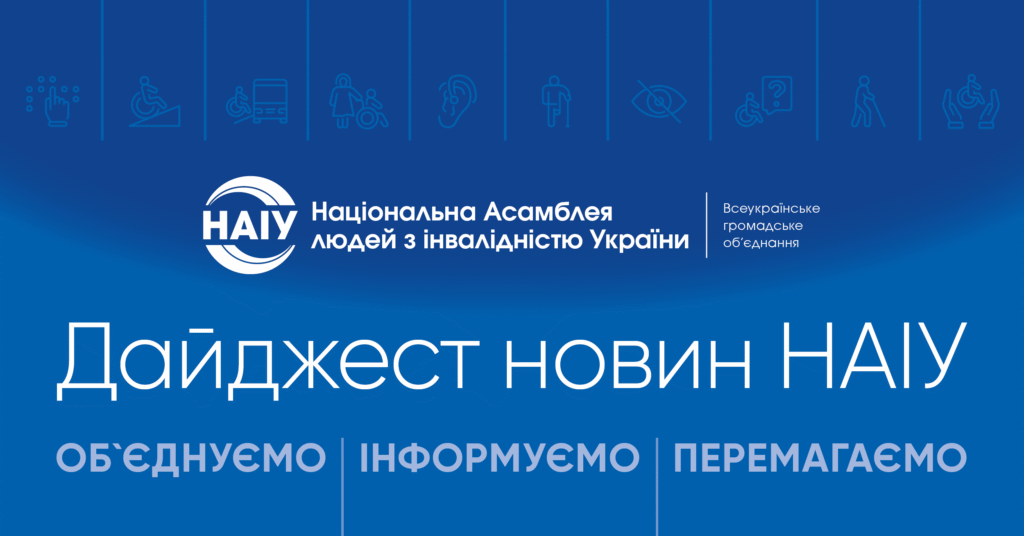Code of Ethical Behaviour
This is our system of moral and professional values, along with the rules of conduct. These standards of behaviour and integrity are expected from all employees, staff members, consultants, volunteers, and others involved in our programmes and projects.
Security Policy
We ensure that NAPD operates in a safe and secure environment where human rights and autonomy are respected, and appropriate measures are effectively implemented to prevent external threats, risks, exploitation, and abuse.
Accessibility Policy
Our principles and practices of accessibility are guided by the UN Convention on the Rights of Persons with Disabilities (CRPD) and Ukrainian legislation. We are dedicated to promoting the creation of accessible conditions that enable people with disabilities to fully exercise their rights in various areas of life.
Feedback Mechanism Policy
NAPD is committed to supporting its members in establishing effective, safe, and responsive complaint mechanisms for individuals affected by crises. All NAPD member organisations are obliged to consider and respond to complaints.
The purpose of this policy is to create a transparent and efficient network feedback mechanism and to assist NAPD member organisations in handling complaints effectively.
Child Protection Policy
The NAPD prioritizes the safety, welfare, and interests of children and vulnerable adults in all circumstances. This policy establishes an ethical framework to prevent risks of abuse involving children.
Policy on Protection Against Sexual Exploitation and Abuse
The NAPD adheres to the strict principle of zero tolerance for sexual exploitation and abuse.
NAPD Safeguarding Policy
Our safeguarding approach focuses on minimizing the risk of harm, exploitation, or abuse to children and adults caused by staff or programme activities.
Safeguarding involves promoting and protecting individuals’ health, well-being, and rights while fostering conditions that enable a life free from harm, exploitation, and abuse.
As an organisation, we aim to protect all community members in the areas where we operate from harm caused by our work, whether intentional or unintentional, as well as any harm caused by others to employees and beneficiaries.
This policy was developed to raise awareness of safety among all employees, member NGOs, and people with disabilities.
Staff Policy
NAPD’s staff policy is designed to establish an effective personnel management and professional development system, optimize organizational activities, and ensure appropriate internal labour discipline to achieve the organization’s core principles, objectives, and activities.
The policy defines the main tasks, procedures for hiring and dismissal, competition processes, remuneration systems, employee duties, responsibility for violations of labour discipline, incentives, and other related provisions.
Non-Discrimination and Gender Equality Policy
This policy is part of NAPD’s Code of Ethical Conduct and applies to all aspects of the organization's activities, including employment, workplace relations, remuneration, communications, and the implementation of grant projects. The NAPD Secretariat is responsible for disseminating and implementing this policy among the NAPD member organisations and employees through training and practical application.
The purpose of the policy is to ensure fair treatment for everyone, regardless of gender, sex, sexual orientation, disability, or other characteristics.
Monitoring and Evaluation Policy
The NAPD advocates for the rights of people with disabilities, implements the UN Convention, works to integrate disability issues into policies, and promotes positive attitudes toward people with disabilities. To achieve this, the NAPD undertakes various activities and projects are implemented with partner support.
Monitoring and evaluation are important for better planning, leadership development, open communication with partners, efficient resource utilization, and identifying areas for improvement. This process enhances the transparency, efficiency, and impact of NAPD’s activities for its beneficiaries.
Privacy and Personal Data Protection Policy
NAPD complies with the Law of Ukraine “On Personal Data Protection” and ensures the security of the information you provide. We collect and process only the data necessary for our work, maintaining its confidentiality and safeguarding it from unauthorised access.
* If needed, you can access your data at any time to modify, block, or delete it. To do so, please contact our team.






